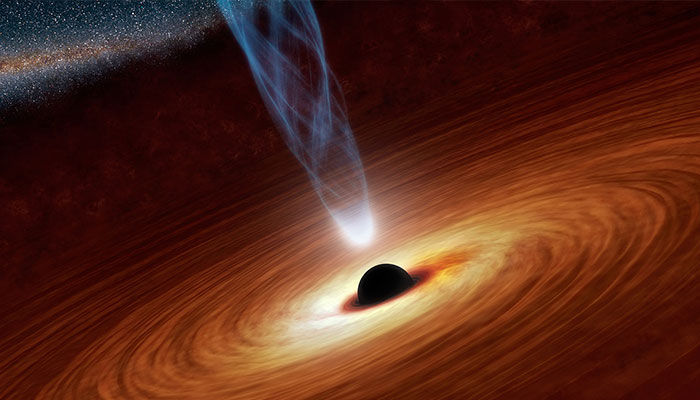Space Research + Education
For decades, the Faculty of Science has been pushing the boundaries of space research and education, transcending the "Sky's the Limit."
With strength in microgravity science and planetary environment, astronomy and astrophysics, planetary materials science, and space physics and space environment, many science faculty, students, and alumni are major players on this out-of-this-world stage, serving critical roles on international missions and initiatives with, amongst others, NASA , the Canadian and European Space Agencies , and even the United Nations .
Through unique research and educational opportunities as well as involvement with the Institute for Space Science Exploration and Technology (ISSET) , the Faculty of Science continues to build on long-standing excellence in space research to take advantage of emerging, cross-disciplinary opportunities, developing partnerships with other institutions, agencies, and industry.
World Space Week
October 4 - 10
The mission of World Space Week Association (WSWA) is to strengthen the link between space and society through public education, participation, and dialogue on the future of space activity using World Space Week as a focus.

Institute for Space Science, Exploration + Technology (ISSET)
ISSET leverages long-standing institutional excellence in space research to generate opportunities and to develop partnerships with other institutions, agencies and industry. ISSET also offers unique educational experiences, outreach programs, visiting professor positions, workshops and scientific meetings.
Science Highlight Areas

Black holes / Astronomy / Cosmology
- Studying the key roles played by interacting stars in order to expand our knowledge of the universe
- Department of Physics Astronomical Observatory offers educational programming as well as free public viewing every Thursday from September to April
- New free Massive Open Online Course (MOOC), Astro 101: Black Holes
Earth observation
Remote sensing to provide new vision of changing environment.
Mars
Phoenix Lander, device used to measure wind speed and direction. Chris Herd savising NASA on how the Mars 2020 Rover Mission will collect samples.
Meteorites
Largest university-based collection in Canada with more than 1400 specimens from over 200 different meteorites.
The tale of AlbertaSat
Space Physics
- Decades of leadership in space weather research including NASA, ESA and CSA satellite missions and the AuroraWatch.ca outreach program
- AlbertaSat and the first ever made-in-Alberta satellite Ex-Alta-1, launched in spring 2017, currently monitoring space weather
Technology + robotics
Development of visual-motor modules for planning and control, which are particularly well suited for space environments and remote robotic systems.
Student engagement
- CaNoRock, Canada-Norway Student Sounding Rocket exchange partnership
- Space Science Summer Camps
